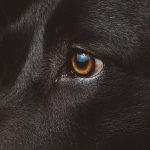‘Do I wear anything underneath?’ she called through the door of the changing room.
‘Nah. But keep your knickers on for now.’
Gail slipped out of her knickers, then stepped into the neoprene legs. As she zipped the suit up she felt it keeping her from flying apart. She looked in the mirror: a black rubbery streak with white hair.
Outside, the girl cleared her throat. ‘How you doing?’
‘It’s good,’ Gail said. ‘I’ll take it.’
‘Really?’ the girl said. ‘I’ll have to open up the till again.’
That had been a few weeks before, when there was still time to do things other than watch and wait. When the surfboard arrived a few days later, she told the delivery man it was for her son.
*
It had been hard to get away, but once the booze ran out people had dissipated, leaving nothing behind but a raft of sausage rolls. She arrived at the coast late, and parked in the usual place. On the passenger seat was the carrier bag with the wetsuit inside, and the urn. She pulled the surfboard out of the boot and it caught the wind like a sail, spinning her round and slamming against the side of the car. She braced herself and carried it down the beach in her black dress and sandals. In the middle of the sand she stripped, taking everything off before putting on the suit. There was nowhere to keep her keys, so she popped them inside the urn, on top of the ashes.
Paddling out beyond the breakers was harder than she’d anticipated. It had been years since she’d swum in a pool, let alone in the sea with a large oval of fibreglass. The board hadn’t been expensive, just some entry-level thing. She hadn’t given it much thought, sensing that if she let herself want it too much, it might shatter.
*
The last time she’d wanted something too much was the previous June. Before that she hadn’t seen him in more than twenty years – she could have left Simon and had children with him back then, but she didn’t. When she’d seen him again last summer, they’d moved in the space of about five sentences each from discussing the weather to wondering where they could go to be alone. She had shopping to put in the fridge and was on her way to vote. He needed to catch a bus, but – finally, urgently – it had to be done.
It wasn’t until they were in the hotel that she backed away again.
‘I can’t do it,’ she said.
‘You don’t love him,’ he groaned, lying on the bedspread and looking out the window.
‘That’s not the point,’ Gail said.
‘It’s the only point worth caring about,’ he said.
She completely forgot to go to the polling station, and then later couldn’t stir herself to leave the house. Simon had already voted Leave.
*
Out beyond the breakers, things were calmer. One by one the other surfers turned their boards to take a wave. Sometimes they’d manage to stand up for a few seconds, and sometimes they’d ride in on their belly. A guy in a red wetsuit stayed upright a full twenty seconds, switch-backing across the crest, rocking his legs back and forth at the end to wring out the last drops of motion.
*
The last time they’d come to the beach together, at the start of the summer, Simon had lowered the windbreak of his newspaper and told her about Nicky, his graduate student. ‘We’ve moved things on to a more physical footing,’ he’d said, looking into the depths of his mug. ‘I’m sorry.’
Gail hadn’t said anything. She’d stared at the horizon for a while, then held out her cup for a refill.
The following week, they’d had the diagnosis.
*
She tried not to notice her arms being tired, or the pain in her legs. She didn’t allow the voice that was telling her she was too old, that it was too late, to get any louder. It was Simon’s voice. She thought of the urn sitting on the beach with her car keys on top. On the beach, the lifeguards were getting restless. ‘Concentrate, Gail, she said out loud, and it was Simon’s voice again, which made her so angry that when the next wave came, she turned the board and started paddling.
When it took her there was no sound and no feeling, just an incredible buoyancy beneath her that didn’t seem real. At some point she must have got on her feet. Her knees ached and clicked, but somehow she stayed upright, ecstatic, shifting her balance until the wave carried the board high up the shore, slithering through the crisscross of undertow, and then she was lying on the sand, a bag of old bones, looking up at the sky where the gulls circled.
*
Afterwards, she didn’t tell people she didn’t vote. She smiled and nodded at the right moment so they could think whatever made them feel best. It was the only time she’d ever been glad she didn’t have children.
*
‘Are you okay?’ It could have been the girl who’d sold her the wetsuit, looking down at her.
‘Yes.’
‘Let me help you up. It’s too late to go out there now, the guards are packing away.’
‘I’m just going to lie here a minute longer. I’m fine.’
‘All right, whatever, have it your way.’ The girl walked off and joined the friend who’d been holding her surfboard.
*
Gail sat up after a while to gaze at the few surfers left in the water. Would they know the right wave when they saw it? Or would it pass them by, an imperceptible swell that grew into the perfect barrel of surf, leaving them to watch helplessly as it crashed in a disintegrating profusion of foam? It could have carried them all the way, if only they’d let it.
…
Biography
Liz Jones lives in Somerset with her family. She writes novels and short stories, and is currently studying part-time for an MA in Creative Writing at Manchester Metropolitan University. Follow Liz on twitter here: @ljedit
Image: Yann Bervas





